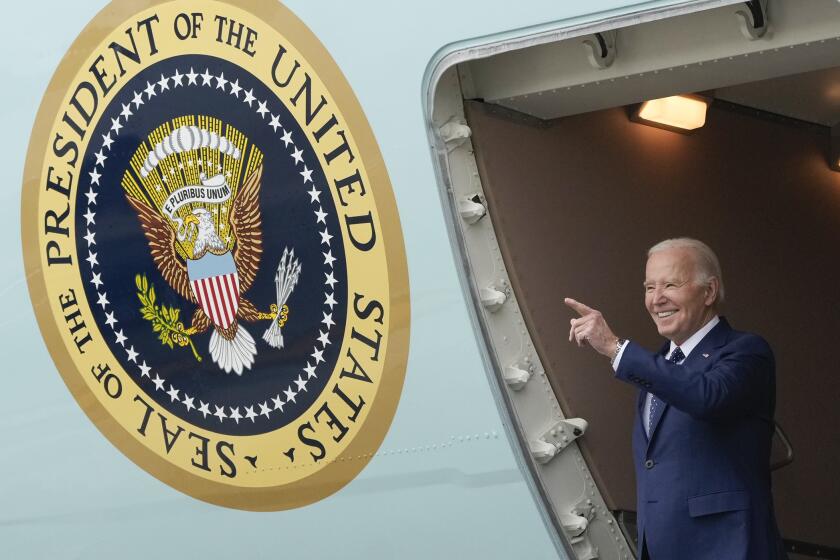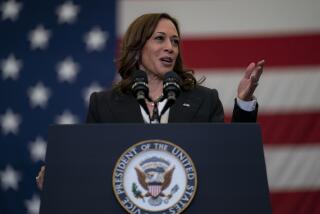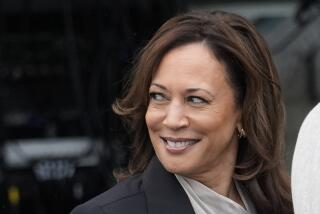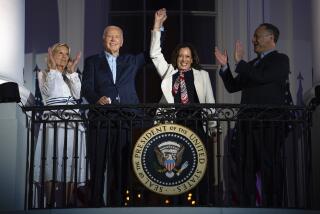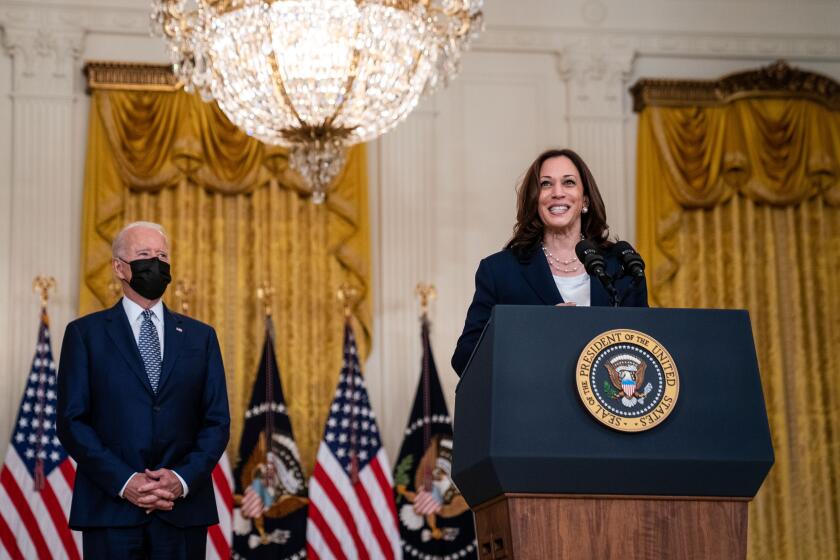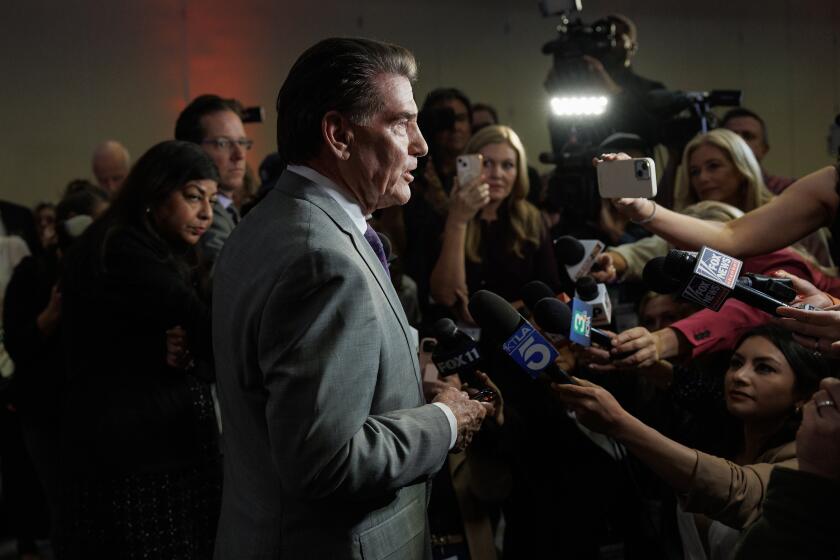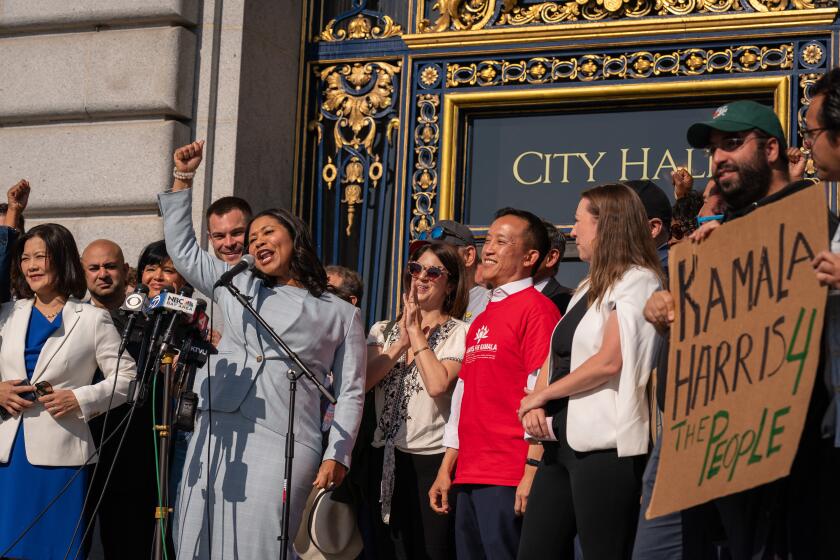Opinion: Can Kamala Harris change a presidential race barely affected by a series of seismic events?
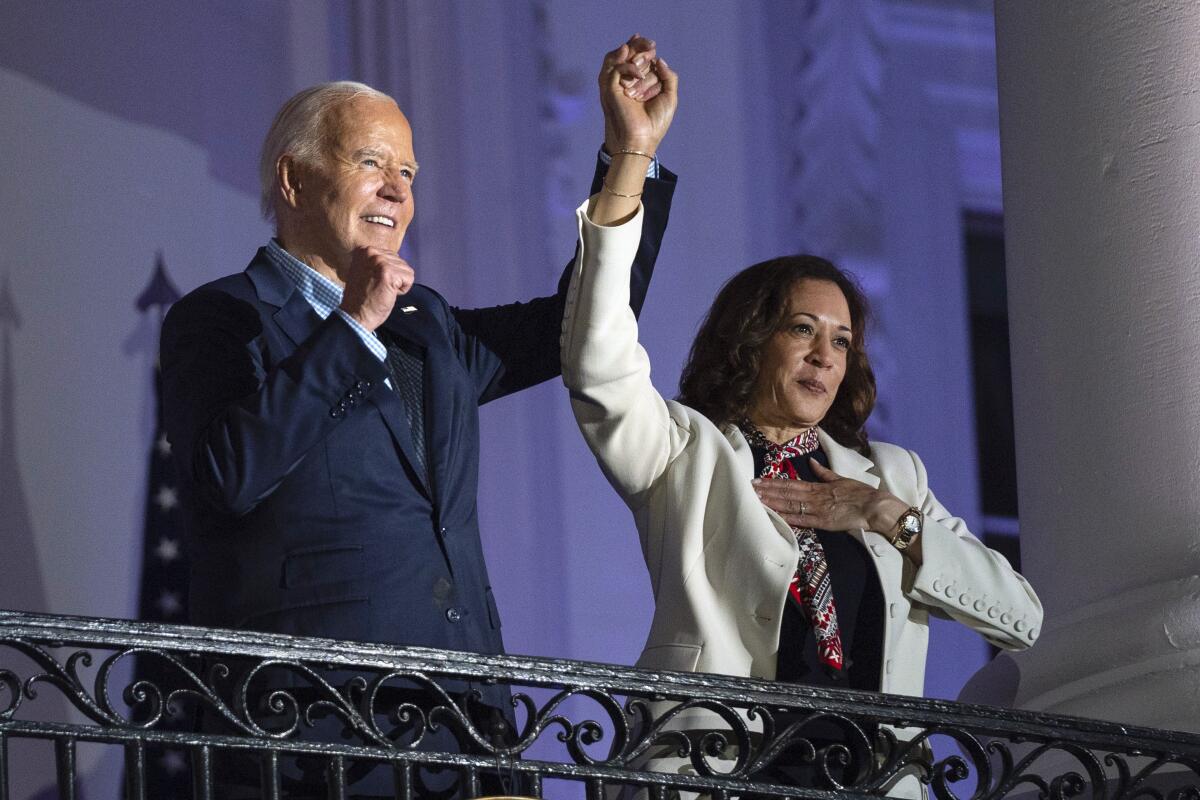
Donald Trump famously said in 2016 that he “could stand in the middle of Fifth Avenue and shoot somebody and wouldn’t lose any voters.” What sounded like an extraordinary exaggeration at the time has essentially been proven correct: Despite a cascade of disasters, defeats, impeachments, indictments and other events that would have derailed other politicians’ ambitions, Trump’s base remains as strong as ever.
But that might have a lot less to do with Trump’s unique ability to inspire cult-like loyalty than it does with a transformation of voting behaviors that has been decades in the making.
This resilient political base is no longer just a Republican phenomenon. Yes, President Biden’s disastrous debate performance led to an unprecedented outcry from Democratic Party leaders, media personalities and donors who called on him to step down as the nominee, ultimately precipitating his historic withdrawal from the race on Sunday. But Democratic voters for the most part responded to the debacle in a way that was eerily similar to their Republican counterparts’ unflagging adherence to Trump, bristling at party elites’ calls for change.
He said in 2020, ‘I view myself as a bridge, not as anything else,’ and now he is living up to that sentiment.
Partisan loyalty and commitment to politicians they see as having fought and won for their worldview have pushed partisan voters to overlook deep flaws in their candidates. While most Democratic voters had been telling pollsters that Biden was too old to be president and should drop out of the race, the same polls continued to show a remarkably close contest between him and Trump.
In fact, the website 538’s much-watched electoral forecast had Biden remaining competitive even on the brink of his decision to bow out, judging his likelihood of getting the necessary 270 electoral votes to be close to that of winning a coin toss — just as it was before the debate. The site’s polling average also showed no more than a two- to three-point drop in support for the aging president even after he endured a daily barrage of news stories on the effort to push him out of the race. And this was while Trump dramatically survived an assassination attempt, won a pair of favorable court rulings on the criminal cases against him and starred in the national convention that nominated him for the third time.
When party leaders choose the nominee rather than letting primary voters weigh in, that doesn’t necessarily yield worse candidates or presidents.
This calcification does not bode well for a democracy’s ability to address differences among politicians and voters or to find common ground. And it virtually guarantees a close election in November regardless of whom the Democrats nominate to replace Biden. In fact, polling shows virtually every major Democratic candidate tested against Trump is essentially within a two- or three-point range of where Biden stood before he stepped aside.
Trump has withstood felony convictions, a series of successful lawsuits and a phalanx of former subordinates speaking out against the dangers of returning him to the White House mainly because of a pernicious force known as negative partisanship. Americans are identifying themselves by what they oppose rather than what they support, making negative partisanship the dominant driver of voting behavior among those registered with either major party.
Voters’ overwhelming adherence to Trump and Biden alike says more about the state of our society than it does about the appeal of a pair of historically unpopular candidates. Americans are entrenched in partisan foxholes of our own making, and the near-term prognosis for finding our way toward any middle ground appears bleak.
It may have felt as if we were on an out-of-control political roller coaster since Biden’s debate debacle, which was only the first in a series of seismic news events. And yet the polling averages haven’t crept more than three points in either direction as a result. Likewise, there’s little reason to think the president’s seemingly earth-shaking withdrawal from the campaign, regardless of who succeeds him as the nominee, will change the fact that this will be yet another close election.
Mike Madrid is a political consultant and the author of “The Latino Century: How America’s Largest Minority is Changing Democracy.”
More to Read
A cure for the common opinion
Get thought-provoking perspectives with our weekly newsletter.
You may occasionally receive promotional content from the Los Angeles Times.

